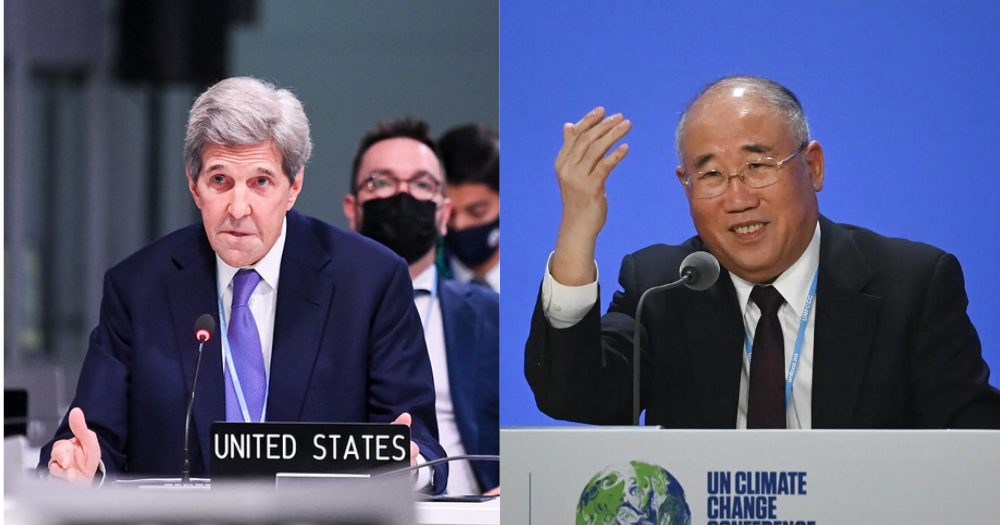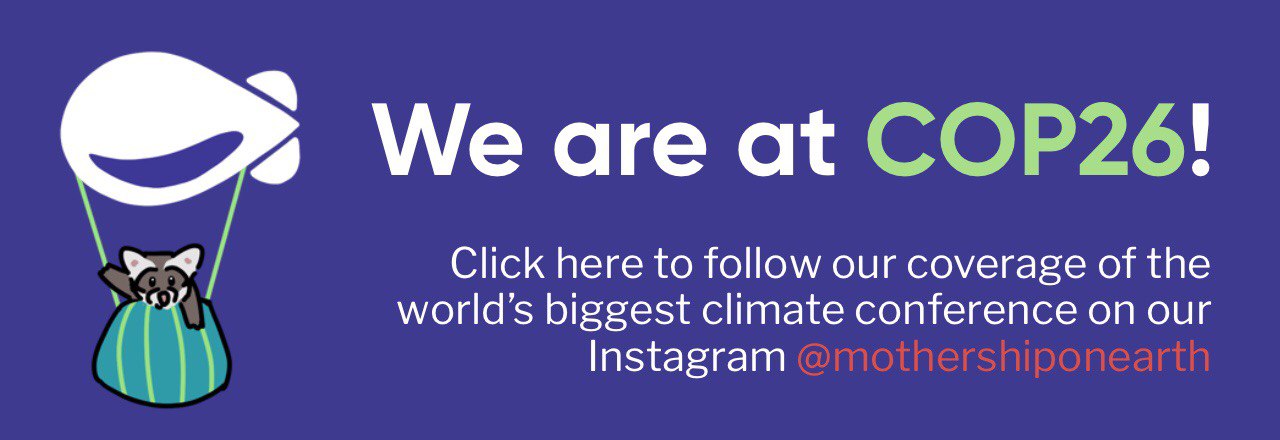Follow us on Telegram for the latest updates: https://t.me/mothershipsg
The two-week global climate summit COP26 at Glasgow, Scotland, is down to its last few days.
In a surprise move, the world's two major carbon emitters, China and the United States, issued a joint statement on Nov. 10 to declare that both countries will work together to enhance climate actions to reduce carbon emissions.
Both countries recognise threat of climate change
China's climate envoy Xie Zhenhua said that the joint statement was a result of over 30 virtual and in-person meetings between the officials from both countries in the past year.
Xie also said that both countries recognise that the challenge of climate change is "existential and a severe one" and as "major powers" in the world, the two countries need to "take our due responsibility" and work together, according to the New York Times (NYT).
U.S. climate envoy John Kerry said that this is "a step in the right direction" and it is "a mark of progress".
The U.S.-China Joint Glasgow Declaration is a step in the right direction, a mark of progress, and a solid foundation for continued cooperation on climate between our two countries. The world can only achieve its climate goals if our countries are pulling in the same direction.
— Special Presidential Envoy John Kerry (@ClimateEnvoy) November 10, 2021
Agreement amid ongoing tension
This joint statement is notable as it came amid ongoing tension between the two countries.
Just last week, representatives of the two countries were still throwing shade at each other for their perceived inaction on climate change.
However, NYT noted that the close personal relationship between Kerry and Xie could have helped, with both men coming out of semi-retirement to take up the role of climate change envoy, and having known each other for 20 years.
Finance to help developing countries decarbonise
According to the joint statement, the two countries recognise significant efforts have been made around the world to address climate change. However, there is a "significant gap" between such efforts.
The two countries intend to work individually and jointly, with other countries, to close this gap.
They also recognise and stress the importance for developed countries to mobilise finance "as soon as possible" to help developing countries cut down on carbon emissions.
Developed countries had promised to jointly fund US$100 billion per year to developing countries every year from 2020 to 2025 but the former failed to deliver this promise.
Areas of collaboration
The two countries also intend to cooperate on various areas to reduce carbon emissions.
These include regulatory frameworks and environmental standards related to reducing emissions of greenhouse gases, clean energy transition and policies to reduce electricity waste , circular economy, carbon capture, utilisation and storage.
Both countries intend to establish a working group to meet regularly to address issues related to climate change.
Such meetings may include local governments, businesses, academics, and serve to exchange policy and technical ideas as well as identifying projects and programmes of "mutual interest".
By 2025, both countries are set to update their climate commitments again.
China plans to cut down on methane emissions
While China did not commit to cease the use of coal at COP26, the joint statement indicated that China intends to develop a "comprehensive and ambitious" National Action Plan on methane, to control and reduce emissions significantly in the 2020s.
The two countries also intend to work together on reducing methane emissions through enhanced measurement, policies and programmes that strengthen management and control of methane.
They also aim to exchange information on the same, and to foster joint research into methane emission reduction challenges and solutions.
The two countries also intend to meet again in the first half of 2022 to discuss further on methane control and reduction.
Top image by Karwai Tang/ UK Government and via Getty Images
Follow and listen to our podcast here
If you like what you read, follow us on Facebook, Instagram, Twitter and Telegram to get the latest updates.

